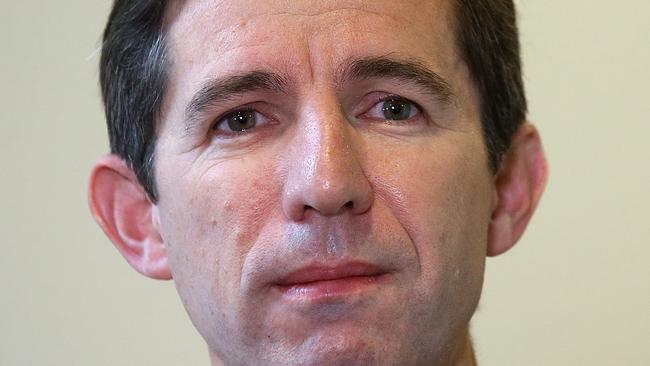School sectors in funding strike
Education Minister Simon Birmingham’s $24.5 billion schools package is facing a backlash from all three key education sectors.

Education Minister Simon Birmingham’s $24.5 billion schools package is facing a backlash from all three key education sectors, as independent schools embark on a last-ditch effort to head off changes to the way funding is allocated, and Catholic educators warn of impending primary school closures.
The Catholic sector’s main eastern seaboard offices have united publicly for the first time to savage Senator Birmingham’s funding agenda, warning that the existing model is so dysfunctional that many primary schools will not be viable without reform.
The archdiocese of Brisbane has joined the southern states in writing collectively to Senator Birmingham and declaring that quality education is under “significant threat” for Catholic children.
The move comes as the independent sector has lobbied Malcolm Turnbull’s ministers and sent an explosive letter to NSW principals, declaring that any major reforms by the government that help Catholics will be interpreted as a reward for “bullying, misrepresentation and personal attacks’’.
The independents also are railing against a proposal to overhaul the current measure for assessing parents’ capacity to contribute to school funding by using income tax returns with residential addresses. And the Australian Education Union, which has been running a separate campaign to restore the original Labor-introduced Gonski funding agreement, also criticised Senator Birmingham’s leadership yesterday, claiming that the government’s stakeholder relationship skills had been non-existent.
School socio-economic scores are used as a quasi means test of parents in Catholic and independent schools, but experts say the current system is biased towards wealthy independent schools because it is an estimate based on where people live rather than income data.
The National School Resourcing Board is expected to brief key stakeholders this week on the findings of its review of the SES model.
The board is expected to find that the current model is biased against the Catholic sector, a decision that would provoke the Turnbull government into providing as much as $1bn in new money over the next four years and possibly more. The Coalition also may provide more capital funding for some non-government schools.
The key sticking point is whether the government will hack into the wealthy independent sector’s funding to fix the system.
Brisbane Catholic Education executive director Pam Betts is the lead signatory in a letter from the three biggest states and the ACT, warning that Senator Birmingham’s current model is so flawed that entire systems are under threat. The letter warns: “As a result of the changes resulting from new government funding arrangements, our systems, and the continued provision of quality education for the young people in our schools, is under threat.
“Under the schooling resource standard model, as it currently stands, it will no longer be financially viable for our Catholic systems to operate primary schools in middle-income and upper-income areas.’’
Ms Betts has been used by the government in the past as evidence of a split in the Catholic sector, privately asserting that she is not supportive of the campaign led by her Victorian counterpart, Stephen Elder.
Mr Elder said: “This has been an unprecedented policy and process disaster. Minister Birmingham decided he knew how to develop what he called a fair, consistent and equitable funding model without consulting anyone other than the independent school sector.’’
In an alarming development for the government, the independent sector is directly contacting ministers over the issue, foreshadowing ways for schools to “engage with their local federal member of parliament on this issue’’.
Association of Independent Schools of NSW chief executive Geoff Newcombe said in a recent letter to all principals that if the Coalition handed billions of dollars to the Catholic sector and changed the SES system then the impact could be huge. “This loss of funding, should it occur, would likely affect schools across the entire SES range, causing fees to rise and limiting school choice for parents,’’ Mr Newcombe wrote.
“There seems little doubt that an outcome that shifts billions of school funding dollars from one sector to another will be interpreted, correctly or not, by many in the community as reward for the bullying, misrepresentation and personal attacks that have taken place throughout this campaign against the Australian government’s plans to introduce consistency and fairness in school funding.’’
Independent Schools Victoria chief executive Michelle Green has written to Victorian federal ministers including Alan Tudge, Dan Tehan, Michael Sukkar, Kelly O’Dwyer, Josh Frydenberg and Greg Hunt, alerting them to “growing alarm” in school communities. “While we are unaware of the NSRB’s final recommendations, we have been informed that it is considering a number of options, some of which have been reported in the media,’’ she said.
The growing backlash comes as Senator Birmingham prepares to sell the merits of the Gonski review to state and territory ministers at a meeting of the Education Council this Friday.


